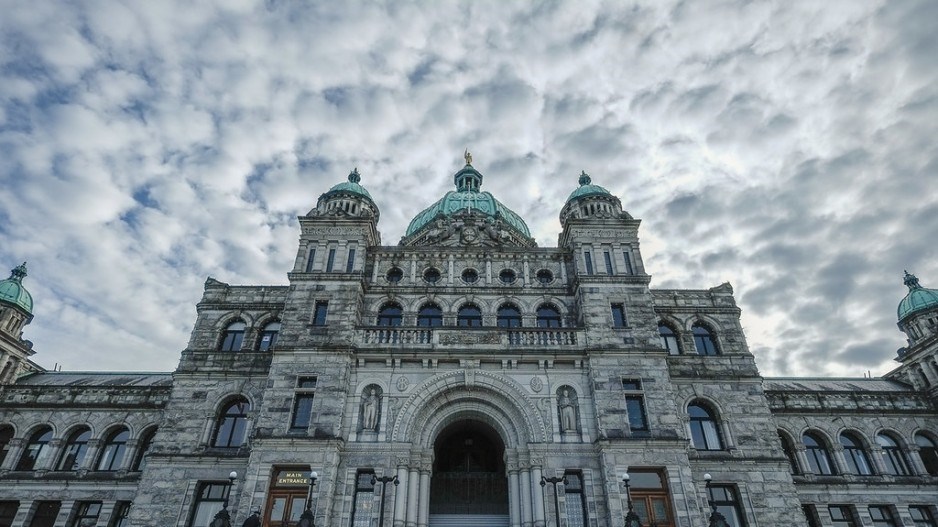Lost amid the whirlwind of the Eby government’s first year of housing, health care and affordability announcements is a suite of economic actions that, taken together, add up to a measured reshaping of B.C.’s economy.
The premier’s mandate letters include clear directions to maximize the production of clean energy, reduce permitting timelines, pursue Indigenous equity stakes in projects, advance critical mineral mines and reform the British Columbia Utilities Commission.
And Budget 2024 provides substance for that direction. New investments in building the clean economy and addressing climate change total $1.3 billion over three years, including $405 million to prepare for and respond to climate emergencies, which the budget rightly identifies as one of the key risks to the province’s economic outlook. Additionally, $318 million will support grant and rebate programs for cleaner transportation, buildings and communities, alongside $474 million to support critical transportation and community infrastructure. This includes $40 million for heat pump rebates and another $30 million for EV charging upgrades.
But Budget 2024 is a continuation of efforts rather than a first step. The province’s energy action framework, announced a year ago, established a new BC Hydro task force to accelerate the electrification of B.C.’s economy, create a clean energy and major projects office to fast-track projects and require that new LNG facilities be net zero by 2030 while putting in place an emissions cap for the oil and gas sector.
In the intervening months, the province completed a new vision for energy and resources with the First Nations Leadership Council and the federal government, announced a $36 billion capital plan for BC Hydro along with the first new clean power call in 15 years, released the first phase of its critical minerals strategy, and supported a $1 billion investment by E-One Moli to manufacture batteries in Maple Ridge.
Budget 2024 also makes thoughtful changes to B.C.’s industrial and consumer carbon pricing systems to address affordability and competitiveness, bringing B.C. more in line with the rest of Canada.
Changes to the Climate Action Tax Credit will see 100 per cent of the April 1 carbon tax increase returned to B.C. families. Additionally, more households will be able to access the credit, with the budget introducing a new target that 80 per cent of residents will receive it by 2030. Most of these residents will receive more back than they pay, and those that adopt money-saving clean energy solutions like EVs and heat pumps can save even more.
These actions are paying dividends to British Columbians and the economy. With the changes to the carbon tax, B.C.’s individual tax burden (including income, property, sales, fuel and carbon) is the second-lowest in Canada after Alberta. The province’s projected real GDP growth forecast is 2.1 per cent over the 2024-to-2028 period, outpacing Canadian forecasts by 0.4 percentage points.
Furthermore, recent polling commissioned by Clean Energy Canada reveals that British Columbians strongly support this reshaping of our economy.
When presented with a number of emerging economic development opportunities for B.C., renewable electricity was most popular with 84 per cent support, followed by manufacturing clean technologies, clean hydrogen, sustainably produced metals and minerals, and engineered wood products like mass timber. In last place were natural gas production and exporting LNG.
But while the first year of the Eby government has taken significant steps to position the province as an energy, economic and climate leader, more action is needed. Ontario, Quebec and many U.S. states are chasing the same investments as B.C., and their success illustrates the size of the prize. The two aforementioned provinces have, for example, landed a combined $45 billion in EV battery manufacturing investments alone.
B.C. has correctly realized that clean electricity will be the backbone of our economy. But while BC Hydro’s capital plan and intent to purchase additional renewable power from the private sector is a good first step, in the long run, B.C. will likely need to at least double its electricity generation.
The need is near-term too. More British Columbians are shifting to EVs (now at 26 per cent of new car sales in the province) and heat pumps, and on the industrial side, companies are saying that electricity is vital for attracting investment in clean manufacturing, green hydrogen production and critical minerals.
B.C. needs to build power ahead of demand—or risk losing business to places that have done just that.
It shouldn’t come to this, however. B.C. has the resources, innovation, clean electricity, talent and market connections to play a pivotal role in the global clean economy. What it lacks is an energy strategy to underpin its ambition, and there’s no time like the present.
Mark Zacharias is the executive director and Evan Pivnick is the clean energy program manager of Clean Energy Canada, a think tank at Simon Fraser University’s Morris J. Wosk Centre for Dialogue.




